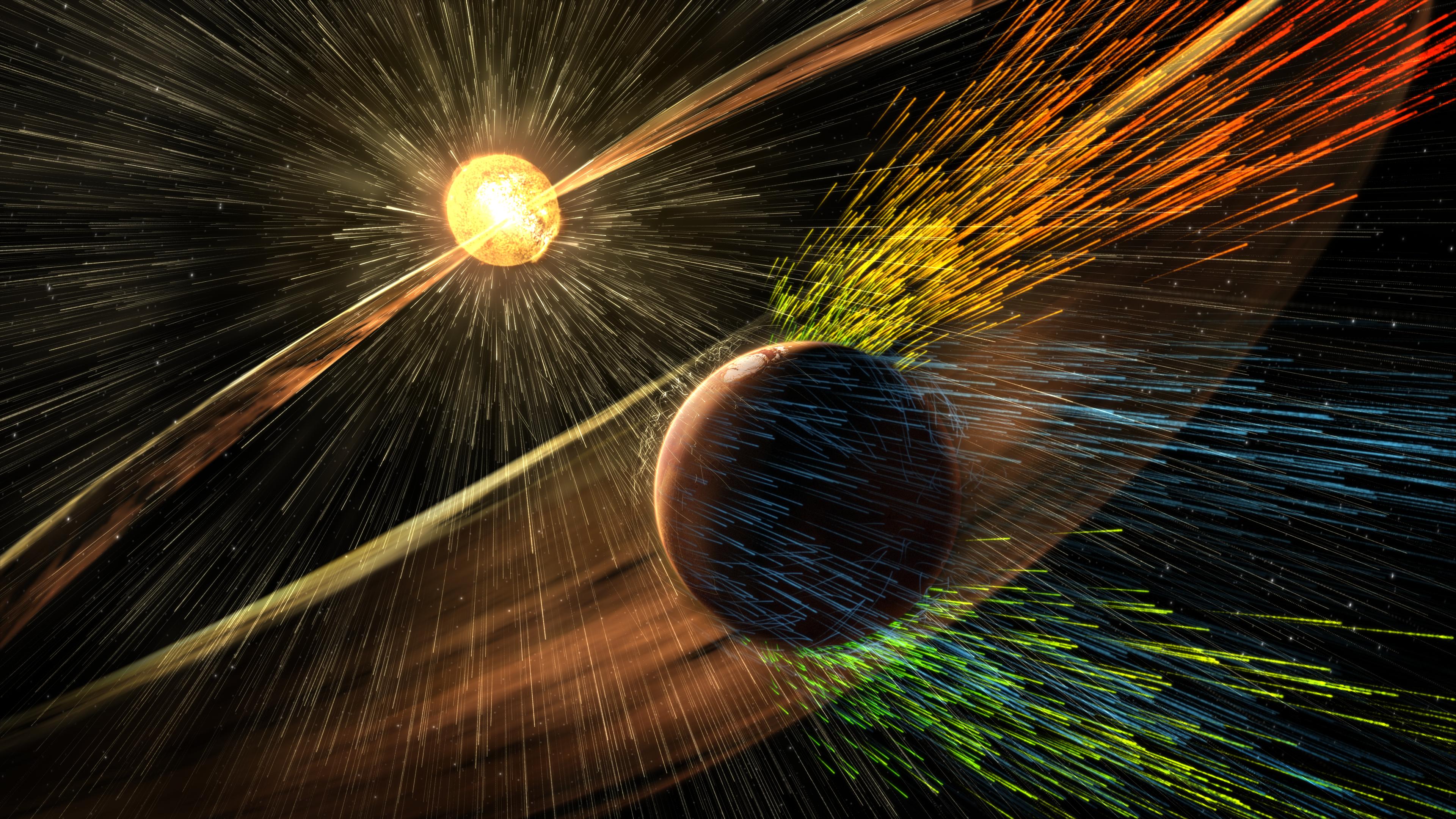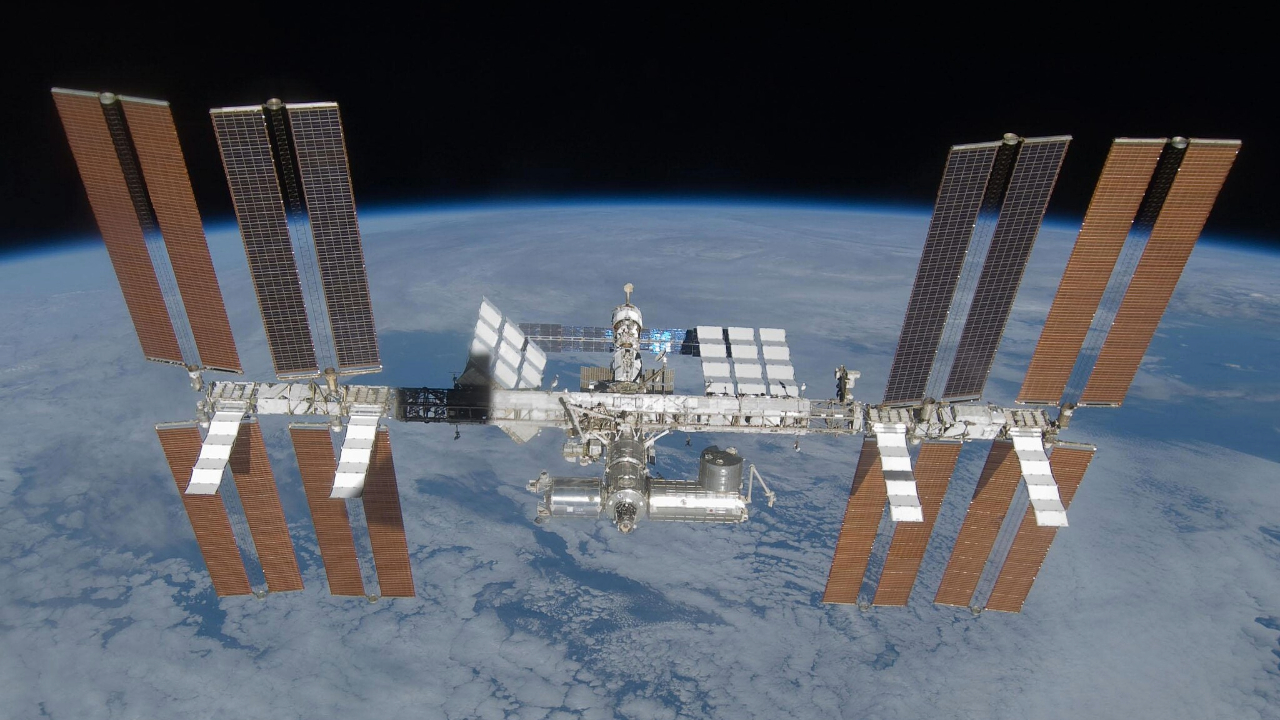Mars lander reveals new details about the Red Planet's strange magnetic field
It's really weird.

Breaking space news, the latest updates on rocket launches, skywatching events and more!
You are now subscribed
Your newsletter sign-up was successful
Want to add more newsletters?
The magnetic field in one zone on Mars is about 10 times stronger than scientists expected, and it's changing rapidly.
New data gathered from NASA's InSight lander, which has been on the Red Planet for a little over a year now, shows that the planet's magnetic field fluctuates rapidly. InSight is the first landing mission to carry a magnetic sensor, which allows it to measure these fields from up close.
"The ground-level data give us a much more sensitive picture of magnetization over smaller areas, and where it's coming from," lead author Catherine Johnson, a professor at the University of British Columbia and senior scientist at the Planetary Science Institute, said in a statement. "In addition to showing that the magnetic field at the landing site was ten times stronger than the satellites anticipated, the data implied it was coming from nearby sources."
Related: Mars lost atmosphere to space as life took hold on Earth
InSight is designed to collect data that helps scientists to reveal more about how rocky planets form by looking at the planet’s interior. Before the lander touched down in November 2018, magnetic fields were measured by satellite and often averaged a distance from the epicenter that was more than 90 miles across.
Billions of years ago, Mars used to have a global magnetic field, but it shut down for reasons that are still unknown, about 4 billion years ago, leaving the atmosphere unshielded to radiation and causing it to bleed over time into space. Any residual fields are likely coming from older rocks buried several feet or miles underneath the planet's surface, these new results from InSight suggest. The team plans to continue to study Mars using InSight to better identify what different types of rocks there are and where they are.
These observations from InSight also showed that the sun influences the Martian magnetic field. The sun sends out charged particles across the solar system in a phenomenon known as the solar wind. These particles carry an interplanetary magnetic field (IMF) that can cause fluctuations in the local magnetic field when it hits the Martian atmosphere. That's because Mars, unlike Earth, has no global magnetic field to act as a buffer against these solar storms.
Breaking space news, the latest updates on rocket launches, skywatching events and more!
There is also some strange data that InSight has collected, revealing things like fluctuations in the magnetic field around midnight, which are likely related to how the solar wind and IMF move around Mars, inducing electrical currents and magnetic fields on the planet. Future observations will help to inform researchers exactly why this is happening, with InSight providing data from the surface at the same time that NASA's Mars Atmosphere and Volatile Evolution (MAVEN) examines the atmosphere above the landing site.
"Because all of our previous observations of Mars have been from the top of its atmosphere or even higher altitudes, we didn't know whether disturbances in solar wind would propagate to the surface," said Johnson. "That's an important thing to understand for future astronaut missions to Mars."
- Occupy Mars: History of robotic Red Planet missions (infographic)
- Measuring marsquakes: How NASA's InSight lander will peer inside Red Planet
- Earthquakes and tsunamis: Causes and information
Follow Elizabeth Howell on Twitter @howellspace. Follow us on Twitter @Spacedotcom and on Facebook.
OFFER: Save at least 56% with our latest magazine deal!
All About Space magazine takes you on an awe-inspiring journey through our solar system and beyond, from the amazing technology and spacecraft that enables humanity to venture into orbit, to the complexities of space science.

Elizabeth Howell (she/her), Ph.D., was a staff writer in the spaceflight channel between 2022 and 2024 specializing in Canadian space news. She was contributing writer for Space.com for 10 years from 2012 to 2024. Elizabeth's reporting includes multiple exclusives with the White House, leading world coverage about a lost-and-found space tomato on the International Space Station, witnessing five human spaceflight launches on two continents, flying parabolic, working inside a spacesuit, and participating in a simulated Mars mission. Her latest book, "Why Am I Taller?" (ECW Press, 2022) is co-written with astronaut Dave Williams.

